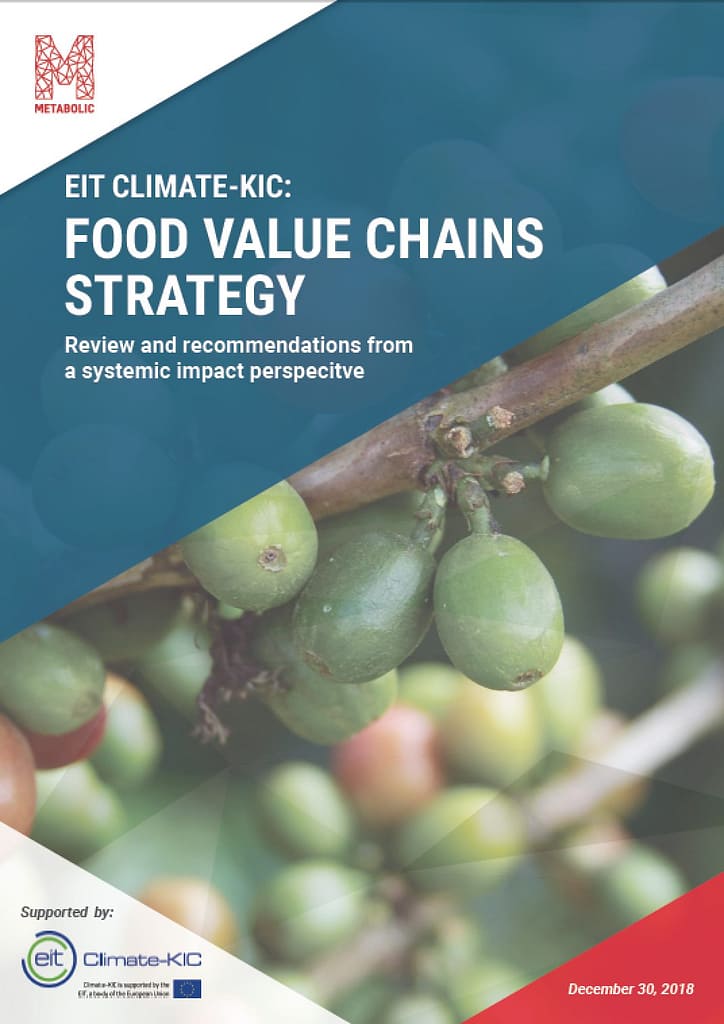EIT Climate-KIC: Food Value Chains Strategy
Helping Europe’s largest public-private climate innovation initiative tackle carbon emissions and climate resilience in the food system.
Metabolic provided a critical assessment of EIT Climate-KIC’s draft strategy for the Food Value Chains focus area. This strategy will be used for selecting, assessing, and funding startups and research projects related to food, positioning it as an essential piece of the initiative’s decision-making toolkit.
- Client: EIT Climate-KIC
- Date: January 2019
Agriculture now occupies roughly half of the plant-habitable surface of the planet, yet around one third of food globally is wasted. Agriculture, forestry, and other land uses are responsible for 24% of global greenhouse gas emissions, positioning sustainable land use as a clear focal area for climate action. EIT Climate-KIC asked us to review and assess their Food Value Chains strategy for backing startups and research projects to help address these issues.
Our priority was to determine how EIT Climate-KIC can best use its resources to make the biggest impact on climate change mitigation and adaptation in food systems. We found the most significant contributor to carbon emissions is land use change, responsible for 12.5% of global emissions through agriculture and soil degradation. Food waste and the production of animal products are the other two major contributors, with these three impacts the priority intervention areas. We also took into account other critical sustainability objectives beyond those related to climate change, such as water management and biogeochemical flows.
We recommended that EIT Climate-KIC should ideally eliminate the separation between the Climate Smart Agriculture sub-theme and the Food Value Chains sub-theme, creating a single Agrifood theme with six topic areas that offer the greatest impact and leverage in the agrifood and land use space:
- Sustainable and low carbon production
- Food waste reduction
- Sustainable and low carbon consumption
- Policy, finance, and governance
- Data collection and reporting
- Innovation, education, capacity building, and
technology transfer
We suggested that EIT Climate-KIC follow our recommended implementation plan, and lead from an outcomes-based vision of what sustainable land use should ultimately look like. For the first three topic areas, we provided examples of what a root cause and intervention assessment could yield, from apps that allows restaurants to calculate the carbon footprint of dishes, to solar-powered systems that keep fresh produce hydrated, enabling farmers in warm climates to better store their harvests.






“A comprehensive vision should be the basis for a set of holistic metrics that will be used to evaluate all projects, taking climate impact reduction as the leading element, but structurally preventing burden shifting in other areas.”
Metabolic CEO Eva Gladek
Director
ANY QUESTIONS?
For more information about this project, please get in touch.






